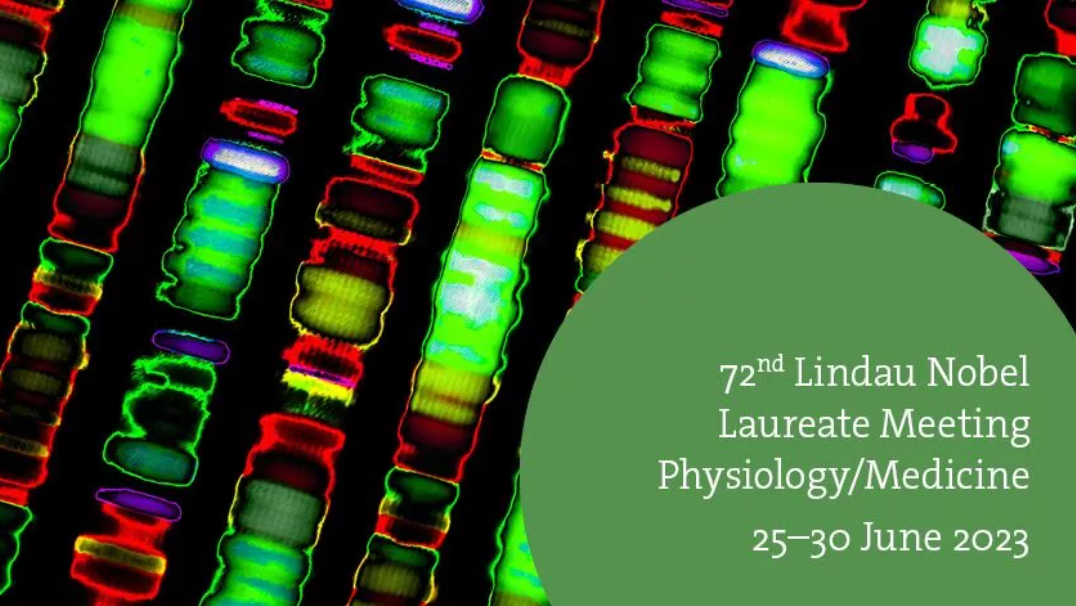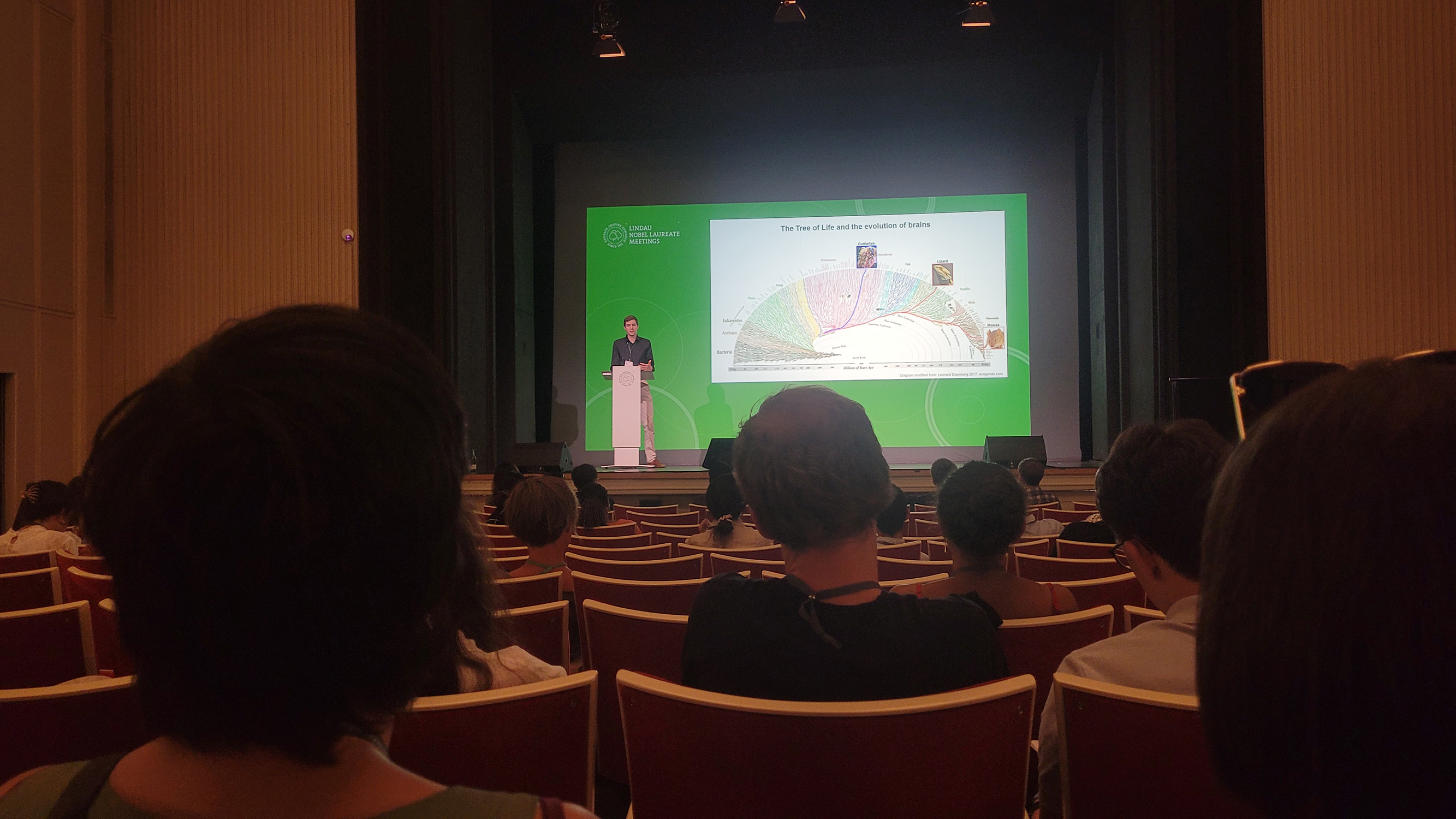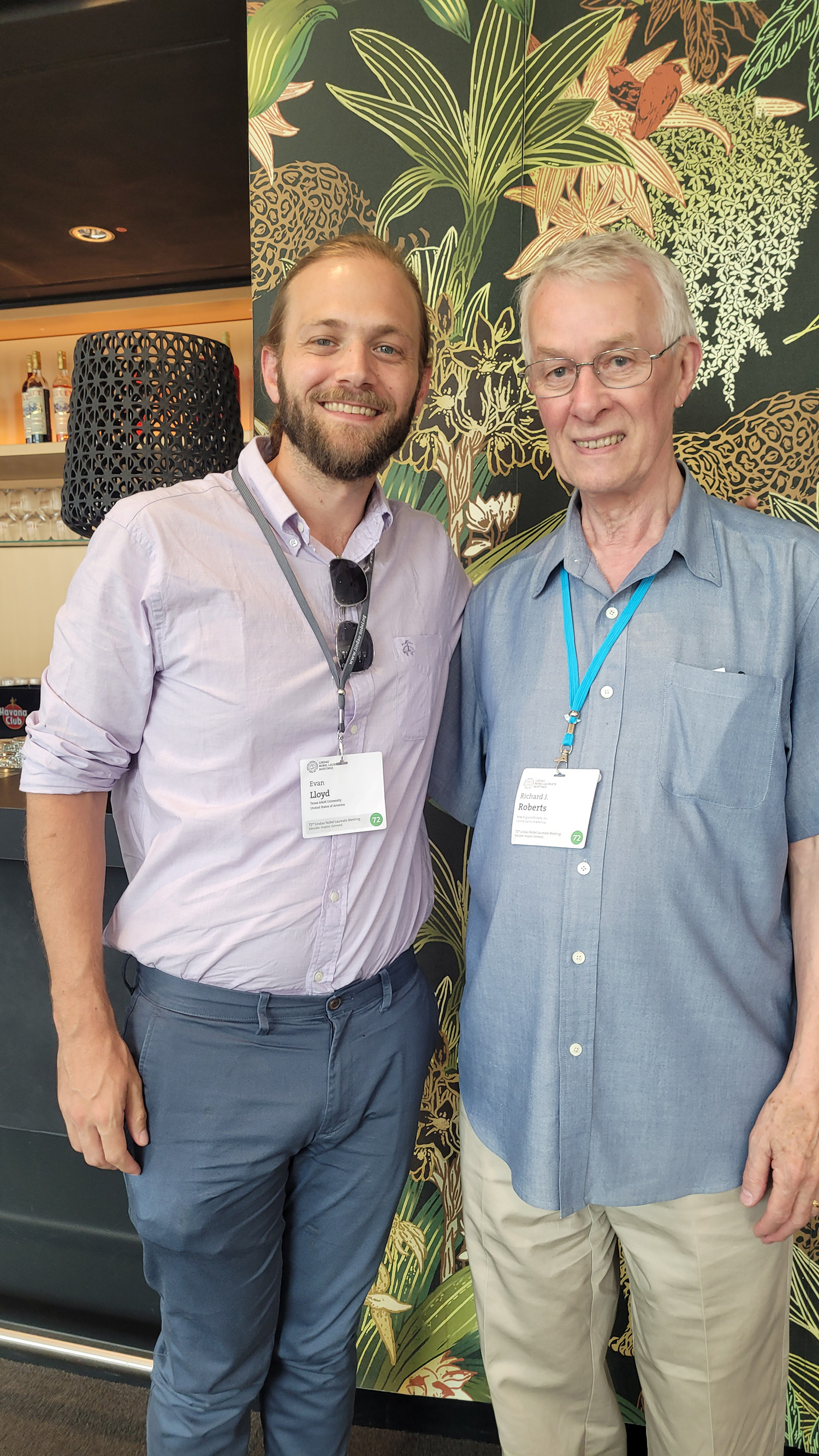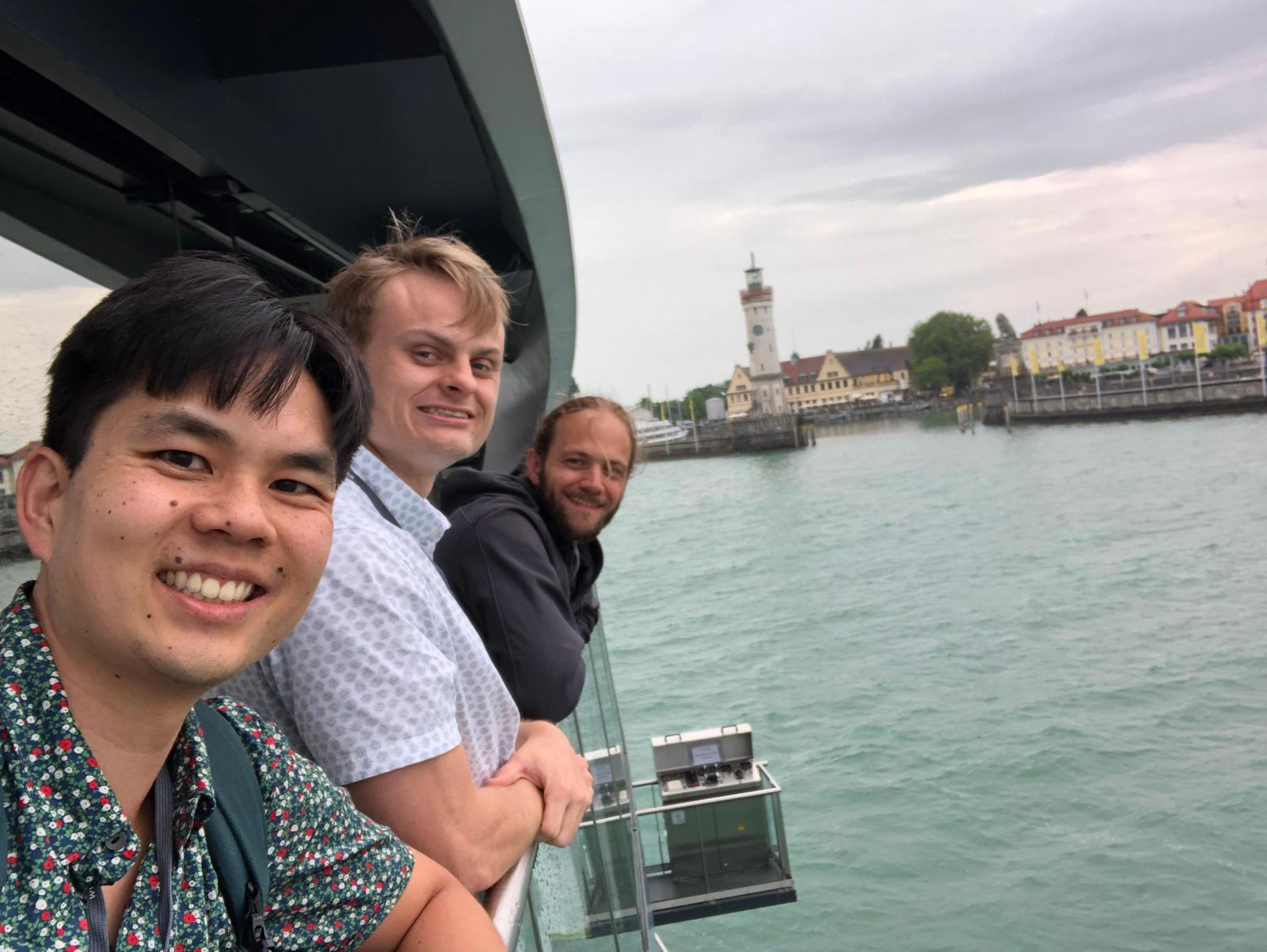
Summer is the season for travel, and one Texas A&M University student is on top of the world following the recent trip of a lifetime spent in the company of some of the world’s scientific elites.
Biology graduate student Evan Lloyd '25 recently spent a week in Lindau, Germany, for the 72nd Lindau Nobel Laureate Meeting, held June 25-30 and dedicated to physiology and medicine.
Once every year, dozens of Nobel laureates convene in the island city of Lindau to meet the next generation of leading scientists: hundreds of undergraduates, Ph.D. students and postdoctoral researchers from all over the world. The Lindau Nobel Laureate Meetings are designed to foster a peaceful exchange between scientists of different generations, cultures and disciplines.
Lloyd is one of five Texas A&M students who were among the nearly 600 young scientists from academic institutions worldwide selected by the scientific review panel of the Council for the Lindau Nobel Laureate Meetings to participate in this year’s prestigious scholarly gathering featuring around 40 Nobel laureates and guests from 90 countries. Lloyd and his fellow students were nominated by faculty and selected based on demonstrated excellence in research documented by publications, conference presentations and/or other research awards and prizes. Their participation and travel expenses were covered by the Hagler Institute for Advanced Study, courtesy of funds provided by the Texas A&M Foundation.
Lloyd is a fifth year Ph.D. student in the Department of Biology, where he studies brain evolution in Mexican cavefish under the mentorship of Texas A&M biologist Dr. Alex C. Keene. Lloyd originally joined the Keene Laboratory in 2016 as an undergraduate at Florida Atlantic University, where he earned a bachelor of arts in psychology in 2017. He began work on his Ph.D. in the Integrative Biology Program at Florida Atlantic, which was led by Keene, then relocated along with Keene to Texas A&M in August 2021 when Keene began his current appointment as head of Texas A&M Biology. Lloyd’s current research involves understanding the sensory basis of prey capture in larval cave fish as well the neural mechanisms underlying regulation of feeding behavior.

“Evan was an exceptional choice to represent Texas A&M at this meeting,” Keene said. “He has spearheaded collaborations with numerous laboratories in the field that have led to the application of brain imaging approaches previously limited to a small number of genetic models. His talent, drive, and supportive nature have led to high visibility publications. He is widely recognized as a rising star in the field of neuroscience, and he is actively being recruited for postdoctoral fellowships in labs all over the world. He will take every opportunity available to him and make the most of it.”
While in Lindau, Lloyd took full advantage of his opportunities to take in Nobel laureate lectures and be exposed to master classes, academic dinners and both roundtable and panel discussions on a variety of topics, from artificial intelligence in medicine and the effects of climate change on health to the latest in emerging avenues of physiology and medicine-related scientific exploration. As in previous years, the event concluded with an all-day tour of Mainau Island highlighted by a science picnic hosted by the Ministry of Science, Education and the Arts, State of Baden-Württemberg.
Lloyd described the meeting as a great blend of lectures, open forums, and one-on-one discussions. Two of his high points were Caltech chemical engineer Dr. Frances Arnold, who kicked off the meeting by presenting her 2018 Nobel Prize in Chemistry-winning work to develop new enzymes through guided evolution, and German biologist and 1995 Nobel Prize in Physiology or Medicine recipient Dr. Christiane Nüsslein-Volhard, who delivered a talk on her current work looking at the development of color patterning across the animal kingdom.
“All the speakers gave fascinating and engaging lectures on a wide range of topics,” Lloyd said. “Some chose to give an overview of their Nobel Prize-winning work, while others showed us their current work, which proved to be just as groundbreaking.”

Lloyd also had the good fortune to secure a spot in a small-group talk with British biochemist Dr. Richard Roberts, co-recipient of the 1993 Nobel Prize in Physiology or Medicine for his discovery of gene splicing.
“He told us about his work at New England Biolabs, and he also gave a lecture on the importance of outreach by scientists to ensure that new tools and technologies are embraced by society, with a particular emphasis on the use of GMOs to tackle food shortages around the world,” Lloyd added.
One unexpected takeaway Lloyd noted was the emerging importance of artificial intelligence, one of the two primary emphasis areas for this year’s gathering. In particular, he cited a related lecture by University of Washington computer scientist Dr. Shwetak Patel regarding his work to develop medical diagnostics tools using AI.
“AI is being utilized for a wide range of applications I had no idea about,” Lloyd said. “I came away from the meeting convinced that AI tools will be vitally important for interpretation of big data sets in the future.”
During the final day of the meeting featuring a boat excursion to Mainau Island and a round table on climate change, Lloyd said he enjoyed the opportunity to strengthen the connections he had made with other young scientists throughout the week.
“All in all, the Lindau meeting was a fantastic, once-in-a-lifetime experience,” Lloyd added. “I'm very grateful to have been given the opportunity.”
Shortly after World War II, Count Lennart Bernadotte, a member of the Swedish royal family, first conceived the idea of having Nobel laureates meet with young researchers to discuss peaceful uses of science at Lindau, an island near his home on Mainau.
Since 1951, the Lindau Meetings have been jointly organized by the Council and Foundation in cooperation with more than 200 of the most renowned science and research institutions worldwide, including Texas A&M, which earlier this month signed a four-year agreement with the Council establishing Texas A&M as the U.S. university provider of students for the prestigious global gathering. The theme alternates each year between physics, chemistry or physiology and medicine — the three Nobel Prize scientific disciplines. In the majority of cases, the young scientists in attendance have to be nominated by these academic partners in order to apply for participation.

“Evan is deeply committed to pursuing a career in science and, by all accounts, on track to run his own laboratory at a top-tier institution,” Keene said. “He effortlessly interacts with leaders in the field and undergraduates alike. He is fully invested in science and eager to meet people and learn about the community. He is a quiet leader, and his enthusiasm for science will support an atmosphere conducive to learning and discovery. The opportunity to interact with exceptional faculty and students at this meeting will have a lasting impact on his career.”
Learn more about the Lindau Nobel Laureate Meetings or graduate study in Texas A&M Biology.
